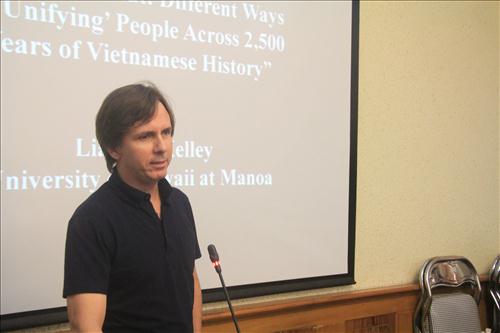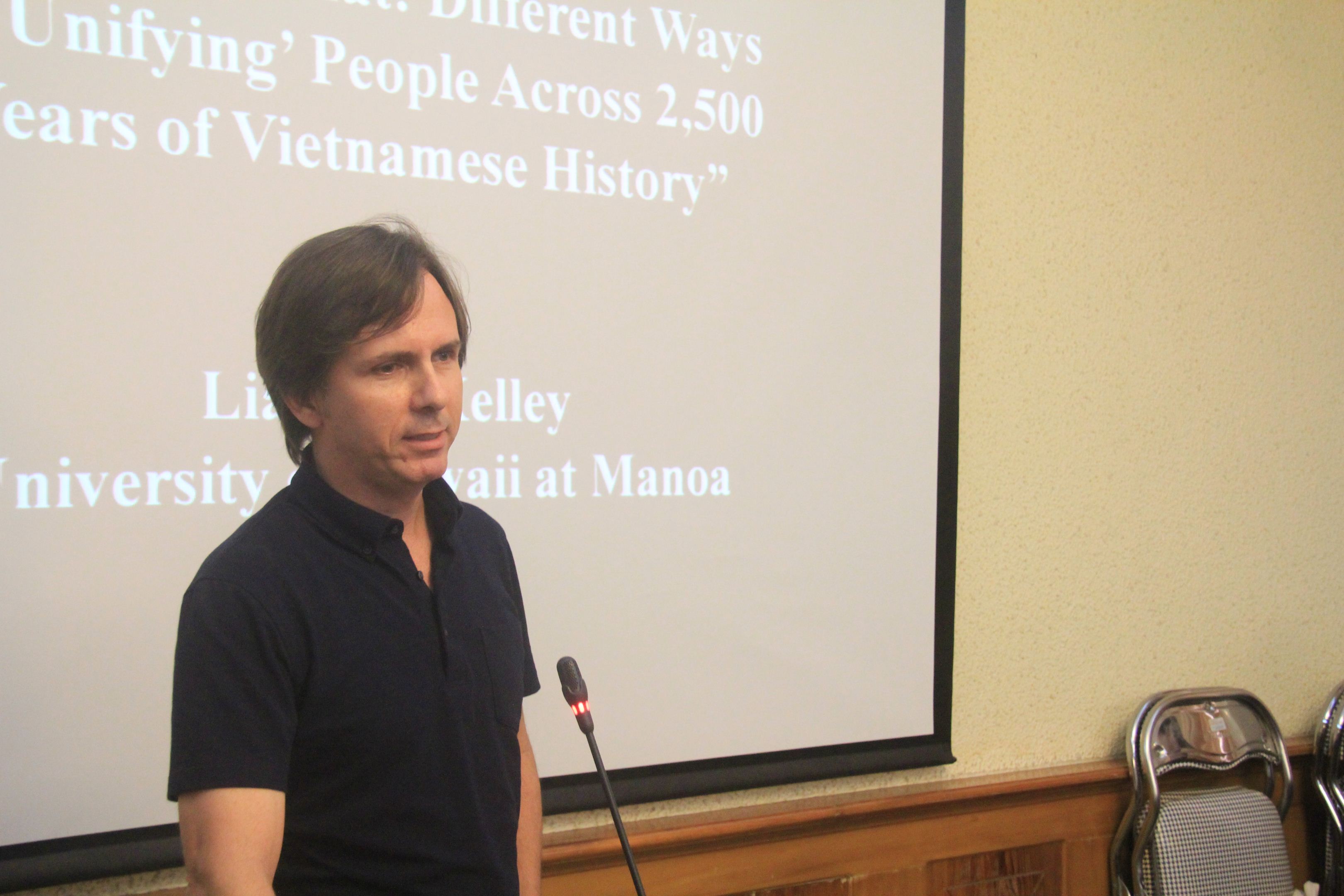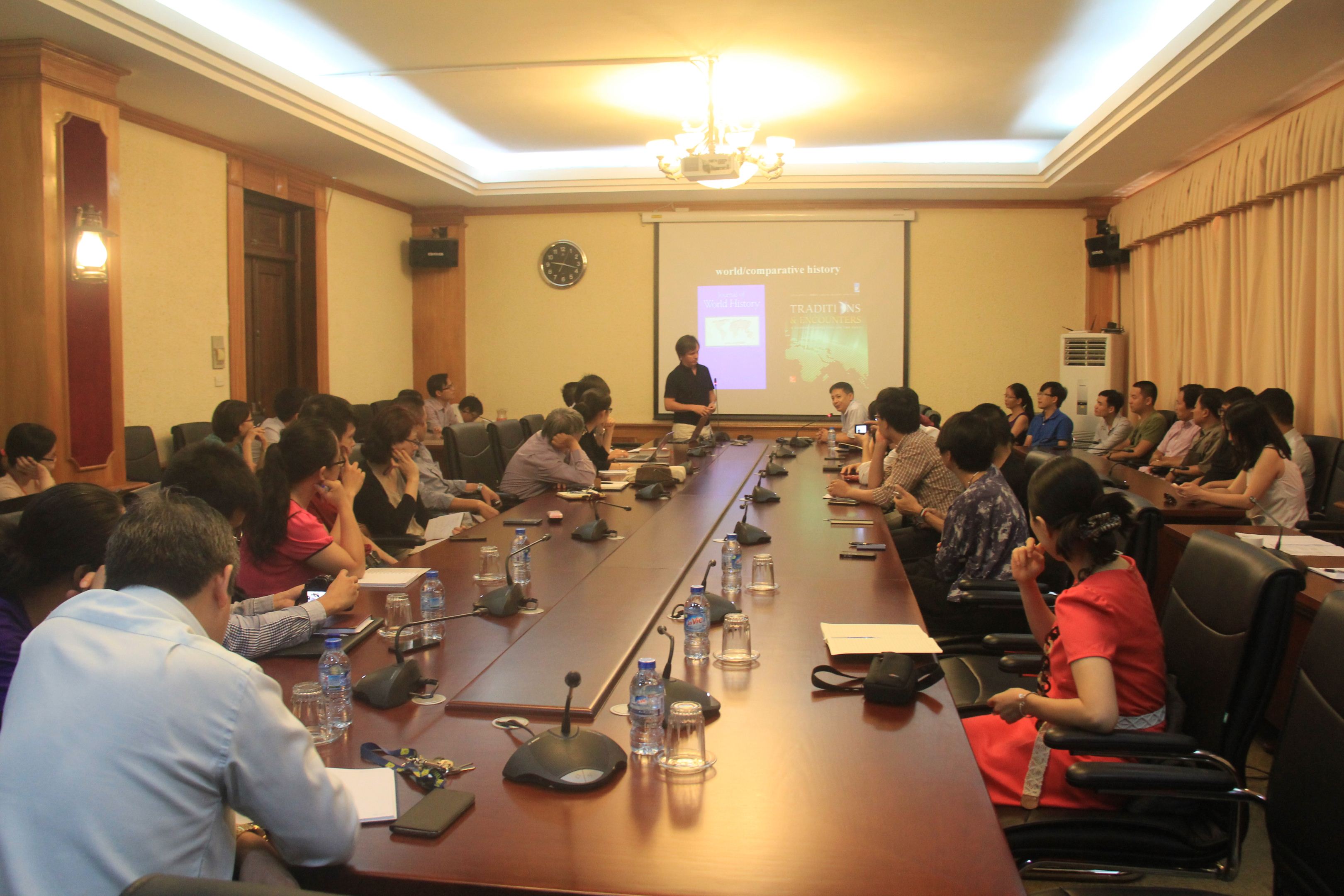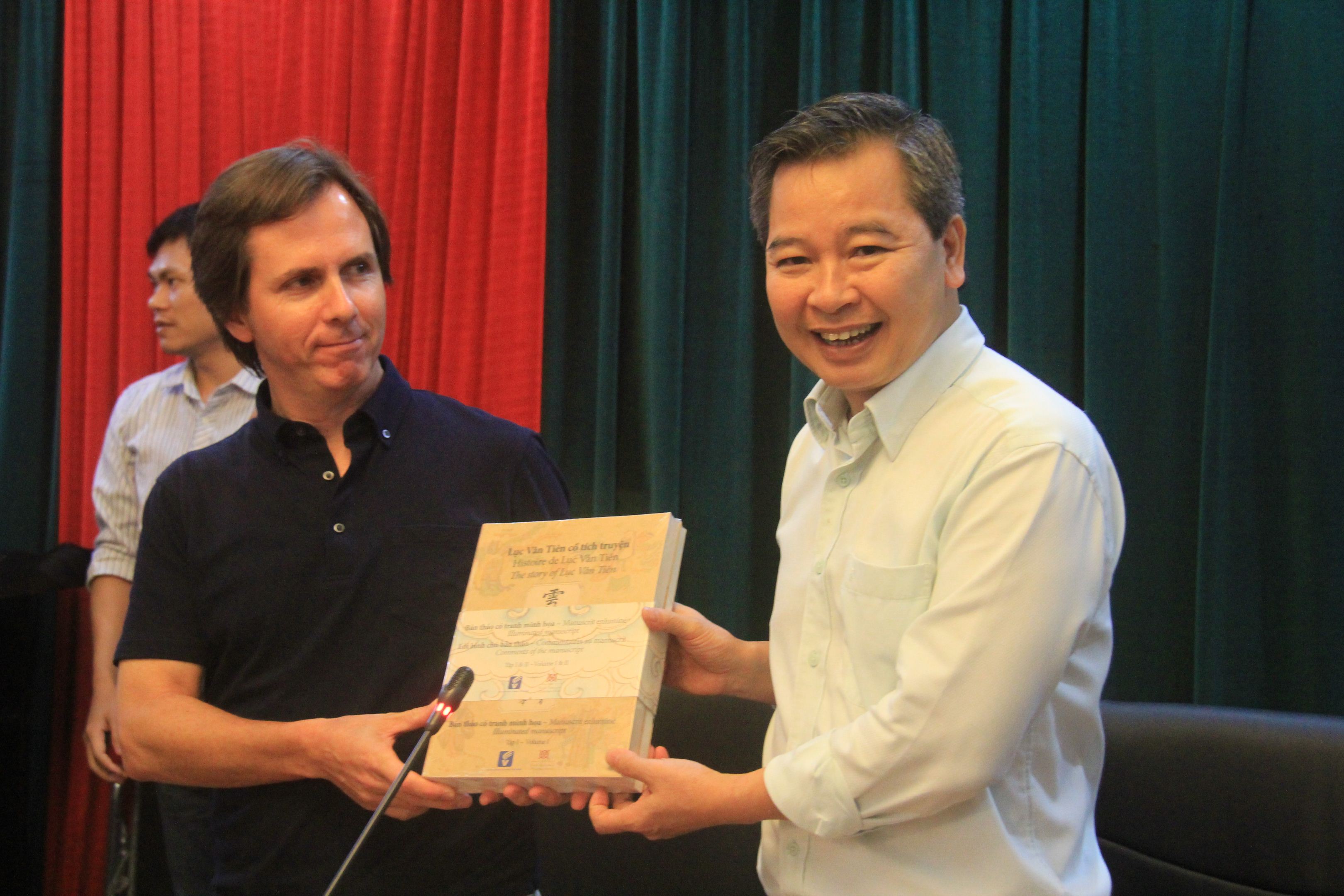
Attending the presentation were Associate Professor Dr. Pham Quang Minh (Rector of the University of Social Sciences and Humanities), staff and lecturers of the University and the Faculty of History, many domestic and foreign researchers, and graduate students and students of the Faculty of History.
In his presentation, Professor Liam Kelley analyzed and explained the unification process of the Vietnamese people from a new perspective. He also placed the unification process of Vietnamese history in the general historical context of the world and drew necessary comparisons. According to Professor Liam Kelley, in history, Vietnam has experienced the following four forms of unification: gathering, unification, solidarity and unification.

The first is gathering. This process took place from the early days of Vietnamese history until the Au Lac period. During this period, leaders and chieftains would use their authority and power to gather people together. This corresponds to the concept of “charismatic leader” mentioned by sociologist Max Weber. In addition, in Vietnam, bronze drums were used to gather small communities together. According to Professor Liam Kelley, the sound of the bronze drum would resonate within a certain range and gather people together. This is similar to the use of bells in churches in the West to gather the flock.
The second phase is marked by the rejection of bronze drum culture and the acceptance of East Asian culture. China is the country that initiated this change. China considered its culture as the center of East Asia and other cultures as foreign or products of the past. Under this influence, the political elite in Vietnam gathered together into a ruling force to promote East Asian culture. Bronze drum culture still existed but only within the scope of small communities. Professor Liam Kelley calls this the “unification” phase, referring to the “orthodoxy” of East Asian culture compared to other cultures.

View of the hall
The third stage lasted from the late 19th century to the mid-20th century and was called “unity” by Professor Liam Kelley. Before the decline of feudalism in Vietnam and the invasion of French colonialism, Vietnam began to absorb Western ideas and culture. The most prominent of these factors was the modern concept of “nation”. This concept was spread by the French in Vietnam through educational reforms such as reform of the education system (in the French style), writing (Quoc Ngu) as well as officially teaching Vietnamese history in the training program. In addition, the Duy Tan movements also developed and contributed to bringing Western elements into Vietnamese culture. According to Professor Liam Kelley, all of these created a common sense of nationality in the Vietnamese people and united them together.
The final stage was marked by the Vietnamese people’s struggle for national liberation. According to Professor Liam Kelley, during this period, nationalism was pushed to an absolute level. This created a total strength in the war against French colonialism and American imperialism. In addition, bronze drums were excavated and restored to become a symbol of the Vietnamese people. From a comparative perspective, the decolonization process also took place in many other countries in the region and also contributed to the promotion of nationalism in each country.
After the presentation, the audience discussed and asked questions to Professor Liam Kelley about issues such as the role of gender, race and bloodline in the unification process of the Vietnamese people, the connection between the concepts of "nation" and "citizenship", different perceptions of the concept of nation in Vietnamese history, the identity of the Vietnamese people...

Associate Professor Dr. Pham Quang Minh presented the three-language poem Luc Van Tien fairy tale to Professor Liam Kelley.
|
Liam Christopher Kelley (黎明愷/Lê Minh Khải) is one of the few American historians researching the history of ancient and medieval Vietnam, known for his works and rather thorny views on the early history of Vietnam, as well as on the cultural and historical relationship between Vietnam and the Northern Empire. Associate Professor, Dr. Kelley teaches Southeast Asian history for undergraduate and graduate students at the University of Hawaii - Manoa (USA). Together with Professor, Dr. Phan Lệ Hà (University of Hawaii), Liam Kelley co-founded the Engaging with Vietnam Forum in 2010, which has had 8 conferences to date. |
Author:Tran Minh
Newer news
Older news